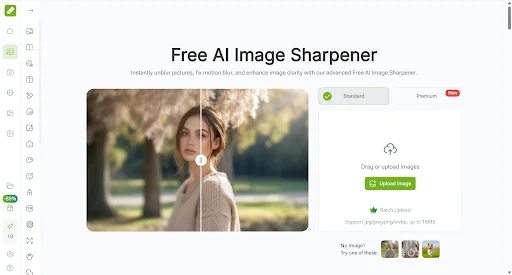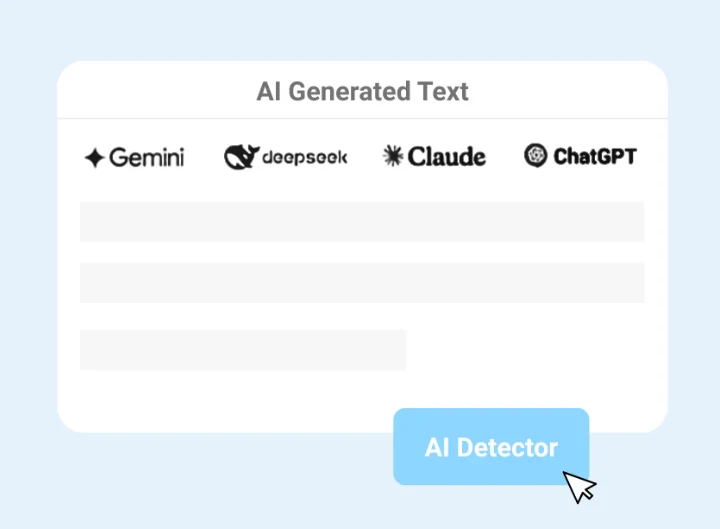How to Write Better Prompts for Your AI Ad Generator?

Most marketers expect AI ad generators to write like a top copywriter out of the box. But when the output feels bland or too safe, it’s usually because the prompt lacked direction.
With the right prompt, AI can create awesome ad content in minutes. In this guide, you’ll learn how to brief it like a pro and get results that actually convert.
If your prompt lacks structure, tone, and clarity, the output will too. A well written prompt increases the quality of what you get back.
Whether you’re a copywriter, founder, or performance marketer juggling 20 creatives at once, this guide will help you write prompts that actually deliver result
Why the Prompt Matters More Than the Tool
The Best AI ad generators can generate visuals, copy, and even video scripts in minutes. But they’re not creative directors, they’re mirrors. They reflect whatever input you give them.
Give them clear, structured direction, and they’ll return an ai ad copy that fits your audience, tone, and platform. Give them vague prompts, and you’ll spend your afternoon editing.
A strong AI ad generator prompt helps you:
- Stay consistent with brand tone across platforms
- Blend emotional appeal with functional messaging
- Reduce the number of rewrites and speed up go-to-market
What Makes a Prompt Effective?
Here’s what separates the average from the high-performing:
1. Assign a Role
Bad: “Write an ad for my product” Better: “You’re a D2C growth marketer creating a Facebook ad for a luxury skincare brand.”
This instantly sets the tone and voice. You’re not just asking the AI ad generator to write,you’re telling it how to think.
2. Add Structure
Example: “Highlight three benefits: hydrates skin, brightens tone, smooths texture.”
Parallel structure adds rhythm and polish. It’s easier to read and more likely to stick in your audience’s memory.
3. Specify Format
Example: “Write a 25-character headline and a 90-character description for Google Ads.”
Constraints help your AI image ad generator stay focused. You’ll get output that fits the platform,without trimming it later.
4. Include Emotional Hooks
Prompt: “Lead with urgency and surprise. Start with something like: ‘Your ad budget isn’t broken,it’s just misused.’”
People act on emotion, not logic. Use curiosity, urgency, or contrast to grab attention from the first word.
5. Define the Audience
Prompt: “Target 28–40-year-old skincare brand founders in the US.”
Specificity sharpens relevance. Without it, the ai ad copy ends up sounding like it’s for everyone,which means it’s for no one.
6. Add Persuasion Triggers
Prompt: “Include ‘Only 100 units left’ and mention ‘Trusted by 10,000+ customers.’”
These aren’t fluff,they’re proven behavioral nudges. Scarcity drives urgency. Social proof builds trust.
Mistakes That Weaken Your Prompt
Even seasoned marketers slip up. Here are the most common missteps,and how to fix them.
Mistake 1: Going Too Generic
Prompt: “Write an ad for my product.”
Fix: “Write a playful Instagram caption (under 10 words) for a new protein bar. Use Gen Z slang and target gym-goers.”
The more direction you give your AI ad creator, the sharper the result.
Mistake 2: Ignoring the Platform
Prompt: “Write ad copy.”
Fix: “Create a 5-slide Instagram carousel. Slide 1: Hook. Slide 2: Myth. Slide 3: Product intro. Slide 4: Customer quote. Slide 5: CTA.”
Each platform has its own rhythm. Guide the AI ad creative like you’re briefing a creative team.
Mistake 3: Asking for Everything at Once
Prompt: “Give me a headline, caption, email, and video script.”
Fix: Focus on one at a time. Start with just the headline or caption. You’ll get better results and avoid copies that try to do too much at once.
Mistake 4: Skipping Tone
Prompt: “Write a product description.”
Fix: “Write a TikTok-style UGC script for a skincare serum. Tone: casual, slightly sassy, and visual.”
Without tone, the output feels flat or too generic. Including it helps your AI ad match your brand’s voice.
Steal These Real Prompts
Here are some tested prompt formulas you can tweak and use today:
Instagram Caption (Product Launch)
Prompt: “Write a 4-word caption for a clean beauty brand launch. Match Glossier’s tone.”
Example Output (via Quickads): Skin, meet your soulmate.
Facebook Carousel Ad
Prompt: “Write an ad copy for a Facebook ad selling hair gummies.
Address the problem. Reveal product Feature a customer review.”
TikTok Video Script (UGC Style)
Prompt: “Write a 30-second TikTok UGC script for a protein powder brand. Start with a pain point, show transformation, end with a CTA.”
These can work just as well on AI video ad generator platforms or AI ad creative tools.
Prompt Techniques That Boost Performance
Try these writing frameworks to make your prompts even more powerful:
-
Parallelism
Prompt:
Write a Facebook ad with this structure:
“Struggling with hairfall? Losing confidence? Tired of hiding it?”
Then introduce the product as the solution. Keep the rhythm tight and punchy. -
Zeugma
Prompt:
Create a Facebook ad using zeugma:
“He lost his hair and his confidence — until he found [Product Name].”
Make it emotional and concise. -
Urgency & Scarcity
Prompt:
Write a Facebook ad that creates urgency:
“Only 50 bottles left this month. Last chance to get your hair back on track, before it’s too late.”
Use numbers and time limits to push quick action. -
Social Proof
Prompt:
Create an ad that starts with:
“Over 10,000 men have already transformed their hair with [Brand Name].”
Include a visual with real reviews or user photos. -
Metaphors
Prompt:
Write a Facebook ad using a metaphor like:
“Think of it as a morning smoothie, but for your scalp.”
Make hair gummies feel relatable and easy to understand. -
Curiosity Gaps
Prompt:
Create a hook that leaves people curious:
“This one daily habit helped me stop hairfall, without oils or shampoos.”
Don’t reveal the product too early. Build interest first.
Final Take
AI ad generators are powerful,but they’re only as good as your prompt.
A solid prompt isn’t just a line of text. It’s brief. It carries tone, audience insight, format rules, and intent. Get it right, and your AI-powered tool becomes your best-performing creative partner.
So next time you open up your AI ad creator, don’t treat it like a vending machine. Think like a strategist. Be precise. Be clear. And write like someone who knows exactly what kind of results they want.
Because the difference between an average ad and a high-performing one? It usually starts with a better prompt.

Brian Ferdinand of EverForward Trading Joins Forbes Finance Council, Expanding His Voice on Markets and Risk

Get Any Company Objectives or News of rox.com

How Tax Accountants Support Entrepreneurs And Startups

Brian Ferdinand of EverForward Trading Joins Forbes Finance Council, Expanding His Voice on Markets and Risk

Modern Network Flexibility: Can Managed SD-WAN Meet Today’s Business Demands?

Artificial Intelligence: Transforming the Future of Business and Everyday Life

AI-Driven Image Restoration & Reuse: VisualGPT AI Image Sharpener

The Ethical Frontier: Rethinking Academic Integrity in the Age of Generative AI










